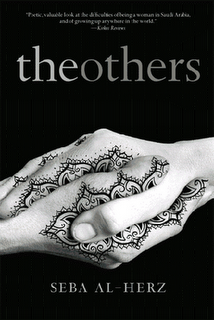The Others

I read all the pages the Google search engine would give me when I typed in the English words homosexual and bisexual. The pages that came up made my head hurt. I felt as though they were forcing upon me awareness, an acknowledgment, of an orientation that was not really mine. And yet the pages that came up on the screen when I searched for the Arabic equivalent, _al-mithliyya al-jinsiyya, all veered from tahrim to tajrim, interdiction to criminalization._
Seba al-Herz’s debut novel, The Others, tells the firsthand account of a Saudi teenager trying to reconcile her feelings of attraction to women—particularly Dai, the woman with whom the narrator first explores these feelings—with the strict Muslim beliefs that make up the framework that governs her country and her ideas of moral behavior. Throughout the book, the narrator battles with the needs of her body and the needs of her soul, and feels that many times the one betrays the other—that she betrays herself. She explains this inner struggle when she speaks of her feelings for Dai: “Dai sliced me into two parts: my body, glorying in its confections, and my self, so determined on purification from its offenses. How horrifically enormous my offense was when measured against the authority of the morals I had amassed through years of instruction.” Her confusion and pain are expressed through beautiful, descriptive prose that captures the struggle of repressed sexuality mixed with the struggles of repressed society.
Although al-Herz’s novel specifically addresses the difficulties faced by lesbian women in Saudi Arabia, her writing transcends those borders and can be applied in some manner to the lives of most women throughout the world. The struggle of reconciling the dialectic that sometimes exists between what we want for ourselves and what society expects of us, and the inability for us to express what we want to those close to us who we know will disapprove, is something that all women can relate to.